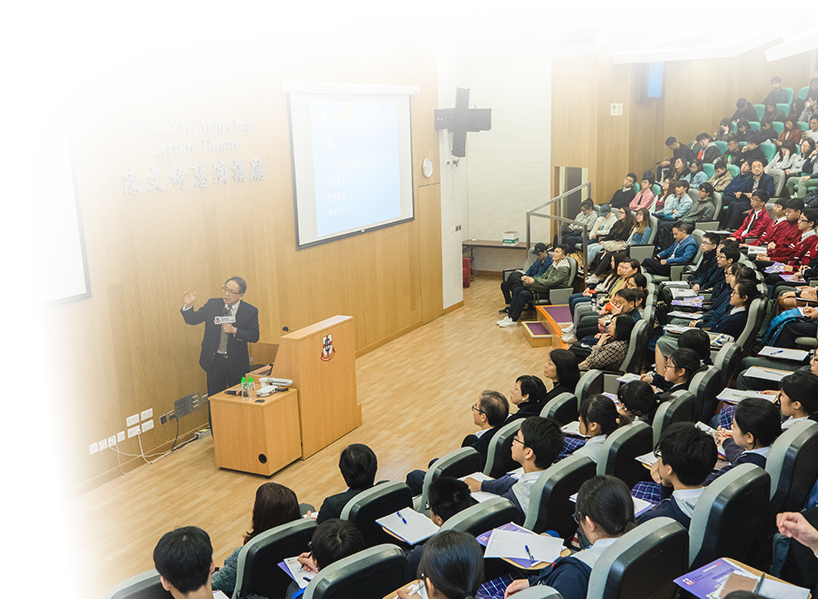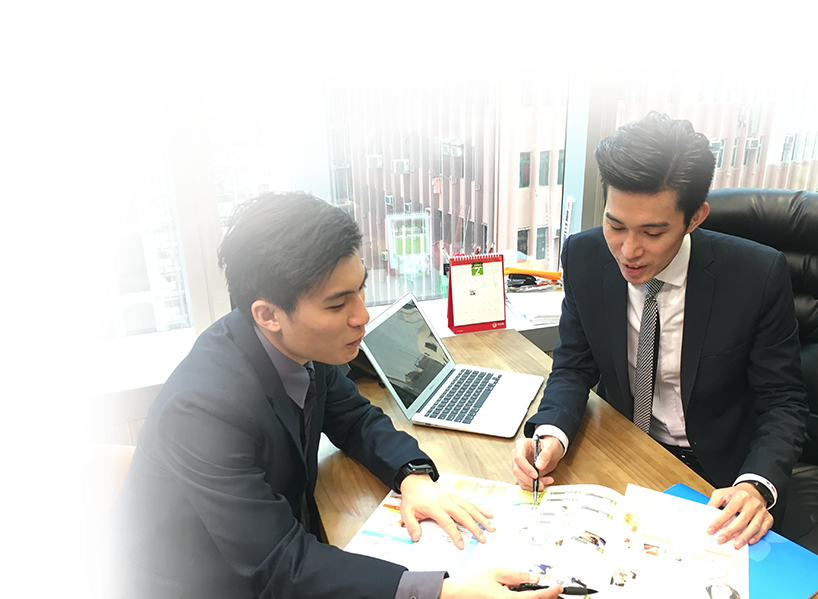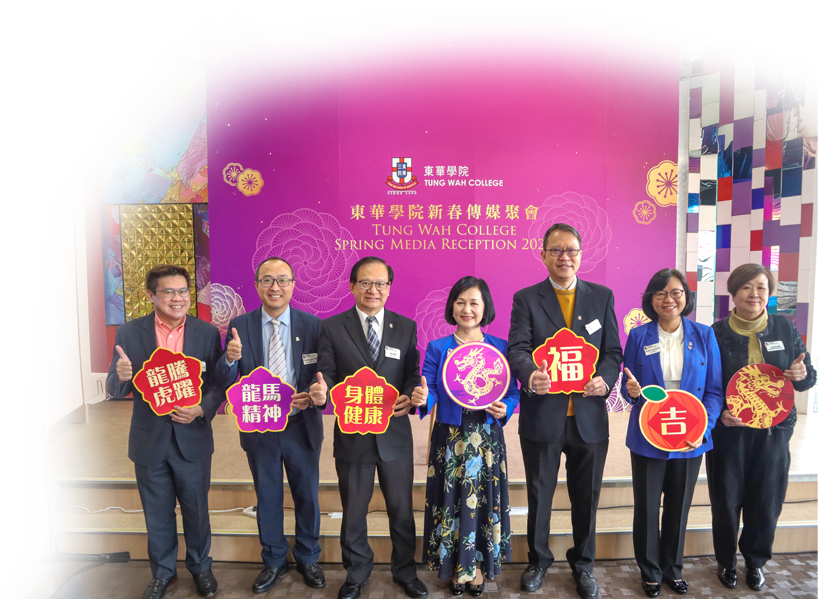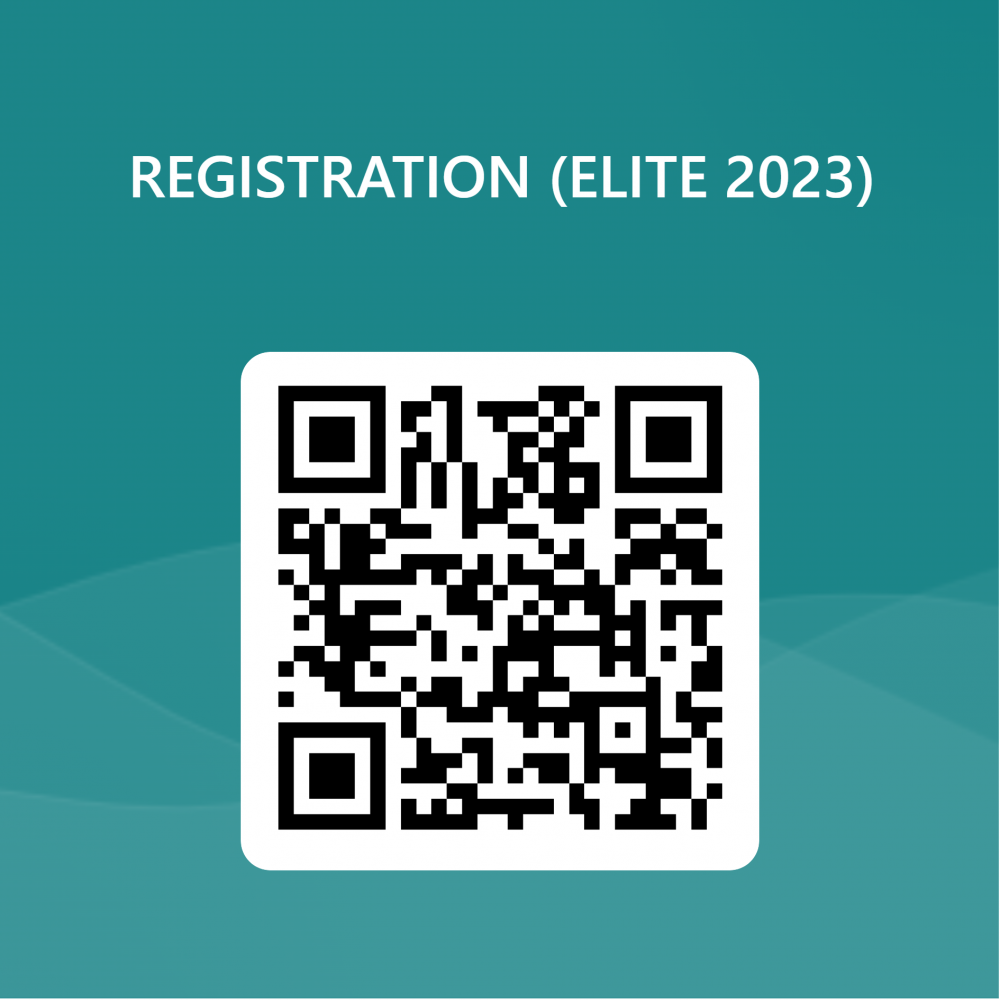
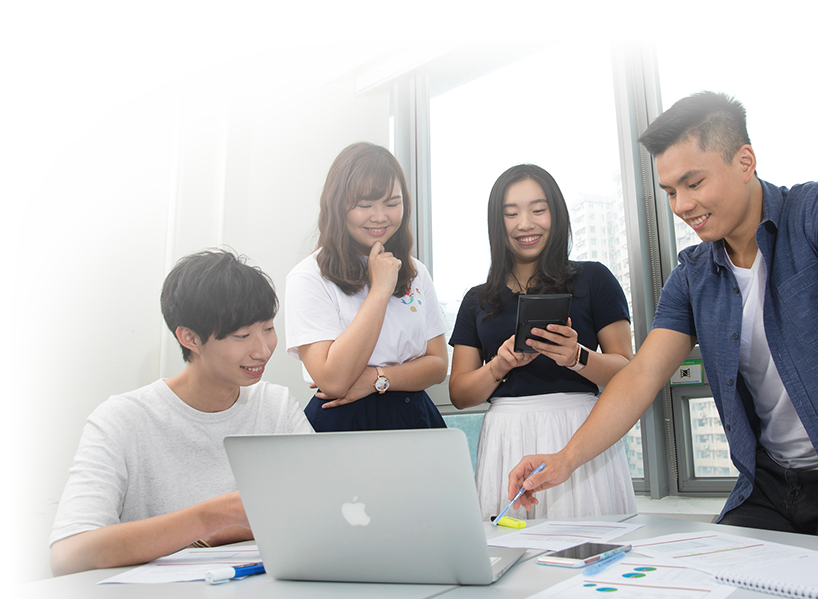
-
學士學位課程
-
副學位課程文憑課程
 夥伴合作與社區聯繫International Conference on Engaged Learning & Innovative Teaching in Higher Education (ELITE 2023)15/11/2023
夥伴合作與社區聯繫International Conference on Engaged Learning & Innovative Teaching in Higher Education (ELITE 2023)15/11/2023Important Updates:
- 18 Oct 2023 The full programme booklet is available for download.
- 11 Oct 2023 Conference Programme is released.
- 21 Sept 2023: Authors have received all notifications. Accepted papers/abstracts must be revised and returned by 30 September 2023.
- 2 Aug 2023: All submissions have been sent out for peer-blind review
- 1 Aug 2023: Submission is CLOSED
- 1 July 2023: Submission deadline is extended (Final) to 31 July 2023
- 1 Jan 2023: Registration is open. Submission is open. Submission deadline is 30 June 2023.
International Conference on Engaged Learning & Innovative Teaching in Higher Education (ELITE 2023)
15th – 17th November 2023
Host at Tung Wah College (TWC), Hong Kong (conducted online via Zoom)
Registration (To receive Zoom link for the Conference): [Link]
Download Programme Booklet (PDF): [Link]
=========================================================================================================================
ELITE 2023 International Conference
Programme
Day 1: 15 November 2023 (Wednesday)TimeDay 1 Programme8:30 am -9:00 amThe Zoom link is ready.Allowing participants to enter.9:00 am – 9:30 amWelcome and Opening Address-
Professor Sally Chan
President, Tung Wah College-
Professor Will Ma
Conference Chairperson, ELITE 2023Group photo taking9:30 am -11:00 amEngaging Learning:Challenges and OpportunitiesPanel:-
Professor Allan YUEN
President, Yew Chung College of Early Childhood Education, HK-
Professor Jin Joy MAO,
Professor, College of Health and Education, Wilkes University, USA-
Professor Albert TEO,
Professor, School of Management, Tung Wah College, HK11:15 am – 12:45 pmPaper Presentation Session 1-
Peer learning to promote active learning in online/hybrid classes – a case study for science education
Kim-hung Lam, Wai-chun Boris Leung, Wai Ki Vicky Chan, Wing-yiu Yu, and Long-yung Ivan Chung, The Hong Kong Polytechnic University-
A Content Analysis Approach to Examining Inclusive Practices in Teaching and Learning Plans
Sundeep Daggubati and Kam Cheng, Ara Institute of Canterbury (New Zealand)-
Vocational Education Input for a Sustainable Hospitality Industry
Monica Wai Chun Choy, Technological and Higher Education Institute of Hong KongAlexander Seeshing Yeung, Australian Catholic University (Australia)-
Students’ Approaches to Learning (SAL) and their Relations to Burnout among University Freshmen in Singapore
Xiao-Feng Kenan Kok, Shermain Puah, Ching Yee Pua, Oran Zane Devilly, and Sok Mui Lim, Centre for Learning Environment and Assessment Development, Singapore Institute of Technology (Singapore)12:45 pm – 2:15 pmLunch Break2:15 pm – 3:45 pmPaper Presentation Session 2-
Navigating a supervision model in TESOL research training: Narrative insights from Asian international PhD students
Thi Thuy Le, Ho Chi Minh City Open University (Vietnam)Helena Sit, The University of Newcastle (Australia)Shen Chen, The University of Newcastle (Australia)-
Educating Students for Skills and Knowledge – An Experience to Instill Self-determination through Business Management Simulation Game Competition
Yui-yip Lau, College of Professional and Continuing Education, The Hong Kong Polytechnic UniversityWill W. K. Ma, Tung Wah CollegeChan Kwai Nam, Icetech Hong Kong Company LimitedChung Chui Ying, College of Professional and Continuing Education, The Hong Kong Polytechnic University-
Second language critical thinking performance of tertiary students with varying academic disciplines
Sheng Tan, The University of Hong Kong-
International doctoral students’ dissertation writing experiences in Hong Kong higher education: The role of prior academic writing instruction and perceived English proficiency levels
Matthew Sung and Tim Yung, City University of Hong Kong4 pm - 5:30 pmAI & Higher EducationPanel:-
Dr. Katrine Wong,
Director, Centre for Teaching and Learning Enhancement, University of Macao, Macao SAR, China-
Professor Christina Hong,
Deputy Vice President, Central Queensland University, Australia-
Mr Wilson Yuen,
Founder & CEO, TFI Digital Media, Hong Kong SAR, ChinaEnd of Day 1Day 2: 16 November 2023 (Thursday)TimeDay 2 Programme9:00 am -9:30 amThe Zoom link is ready.Allowing participants to enter.9:30 am -11:00 amEducation Technology Implementation:Challenges and BarriersPanel:-
Professor Meifeng LIU
School of Educational Technology, Faculty of Education, Beijing Normal University, China-
Dr Juhong Christie Liu,
Director, Instructional Design, James Madison University, USA-
Dr Karin Avnit
Deputy Director, CoLEAD (Tech-Enhanced Learning), Singapore Institute of Technology, Singapore11:15 am – 12:45 pmPaper Presentation Session 3-
Work-Life-Study Balance Challenges and the overcoming strategies of Women in the New Zealand Construction Industry
Xinping, Yang and Kam Yuen, Cheng, Ara Institute of Canterbury (New Zealand)-
Closing Competency Gaps for Engineering Students using a Competence-based Assessment Format
Benson K.H. Hung, Hong Kong Institute of Vocational Education (Tsing Yi), Vocational Training Council-
Value and Challenges of an Integrated Course on Digital Marketing and Big Data: A Focus Group Study
Lee Ka-wai, The University of Hong Kong-
Peer learning to promote active learning in online/hybrid classes – a case study for science education
Kim-hung Lam, Wai-chun Boris Leung, Wai Ki Vicky Chan, Wing-yiu Yu, and Long-yung Ivan Chung, The Hong Kong Polytechnic University12:45 pm – 2:15 pmLunch Break2:15 pm – 3:45 pmPaper Presentation Session 4-
A Philosophical Approach to Teacher Education
Chi-Ming Lam, Education University of Hong Kong-
Embedding Virtual Learning Stimulations to Conventional Classroom Teaching
Yui-yip Lau, College of Professional and Continuing Education, The Hong Kong Polytechnic UniversityNicole S.N. Yiu, The Hong Kong Polytechnic UniversityEve Man Hin Chan, Technological and Higher Education Institute of Hong KongChung Chui Ying, College of Professional and Continuing Education, The Hong Kong Polytechnic University-
Students’ Perceptions of Using Video Essays as Assessment Tools
Anna Wing Bo TSO, The Hang Seng University of Hong Kong-
Skills and values for the future job market and higher education students’ perceptions: Questionnaire construction procedure
Lalla Fatima Zohra ALAMI TALBI, Mohammed V university in Rabat (Morocco)Sanae FAHMI, Mohammed V university in Rabat, (Morocco)4 pm - 6:00 pmPaper Presentation Session 5-
Re-validating an assessment tool to identify, assess, and develop higher education students’ innovation competence in online education
Meiju Keinänen and Taru Konst, Turku University of Applied Sciences (Finland)-
Educators’ Experiences in enabling students learning for the VUCA world
Sirpa Hänti, Turku University of Applied Sciences (Finland)Koen Veermans, University of Turku (Finland)-
Modeling of Domain-Specific Competence among Technicians (EQF 6) at Higher Education Facilities in Germany and Integration thereof in Ackerman’s PPIK Theory as a possible Framework
Eberhard Huester (OStR), Balthasar Neumann Technikum Trier (BNT Trier)(Germany)-
The Structure of Vocational Interests of Future Technicians (EQF 6) in Mechanical Engineering for Inter-preting Technical Drawings
Eberhard Huester (OStR), Balthasar Neumann Technikum Trier (BNT Trier)(Germany)Hannes Saas, Technical University of Kaiserslautern-Landau (Germany)-
The Impacts of e-Learning and Virtual Reality on Diagnostic Radiography Education
Kathy Pang, Robert Gordon University (UK)Shi Tian Chia, Singapore Institute of Technology (Singapore)Sin Ping Winna Teng, Singapore Institute of Technology (Singapore)Christopher Lai, Singapore Institute of Technology (Singapore)Hajmath Begum Mohamed Sali, Singapore Institute of Technology (Singapore)End of Day 2
Day 3: 17 November 2023 (Friday)
TimeDay 3 Programme9:00 am -9:30 amThe Zoom link is ready.Allowing participants to enter.9:30 am -11:00 amPaper Presentation Session 6-
Empowering the Future of Construction and Quantity Surveying Professionals: Unveiling the Skills Revolution in New Zealand's Construction Industry
Yingyi Zhou Health New Zealand (New Zealand)Kam Yuen Cheng, Ara Institute of Canterbury (New Zealand)-
Intuited the usefulness of an asynchronous online discussion in a course management system among university students in Hong Kong
Shui Kau Chiu, Technological and Higher Education Institute of Hong Kong-
Gongyeh App: EFL students’ voices from Hong Kong
Frankie Har, Hong Kong Polytechnic University-
Technology-aided Learning at the Intersection of Presence-at-hand and Readiness-to-hand and the Fusion of Horizons among Students, Technology and Teachers
Jeff Hok-Yin Lau, Caritas Institute of Higher Education11:15 am – 12:45 pmPaper Presentation Session 7-
Existential Relationship between Teacher-Centred Learning and Student-Centred Learning Inauthentic Solicitude as a Necessary Condition of Authentic Solicitude
Jeff Hok-Yin Lau, Caritas Institute of Higher Education-
Student-Teachers’ Practicum Experiences in Hong Kong and Macao during the COVID-19 Pandemic
Huey Lei, Caritas Institute of Higher EducationVictor Wan-chong Choi, Macao Polytechnic University, (Macao SAR, China)Marcruz Yew-lee Ong, Caritas Institute of Higher Education-
Practical journalism modules to be taught online: A blessing or a nightmare to the teachers and students?
Wendy Wing-lam Chan, HKUSpace Po Leung Kuk Stanley Ho Community CollegeWong Chi-hung, Hong Kong Metropolitan University-
Hollowing out and reinventing higher education: An individualist perspective
Shui Kau CHIU, Technological and Higher Education Institute of Hong KongEnd of ConferenceEngaged Learning & Innovative Teaching in Higher Education
In response to the challenges, a new paradigm of educating for knowledge and educating for skills has arisen in higher education. Reports and media quotes described that: "Colleges are failing to meet the demands of students and the outcome is a crisis for universities. Students are looking for career-aligned diplomas elsewhere," Utah "continues in the steps of other governments and private firms that have shifted away from requiring a four-year degree to fill 98% of state executive branch posts," “More than 70% of employers claim that a college education is no longer a trustworthy indicator of an employer's quality,” "The feedback mechanism that is the characteristic of the majority of jobs today is not present in the college classroom, which reinforces the message that failure is unacceptable and the majority of students have never experienced it," and so on.
Higher education academics have long held the view that a college's role is to provide students with a wide education, and they continue to be extremely wary of anything that suggests vocational training. The idea that firms prepare workers for employment while colleges provide general education for life must be challenged if higher education is to remain relevant to students. There have been suggestions that there is no reason why colleges shouldn't offer both a broad education and the specialized skills required for the industry. One of the issues with higher education today is that even when the most beneficial learning opportunities are increasingly occurring outside of the classroom or away from campus, students are still paying ever-rising tuition prices for the academic experience on campus. To meet students' expectations for return on investment, higher education must re-think on how to tackle the challenges.
In order to adapt to it and reinvent curriculum, teaching pedagogies, assessment, and make higher education more relevant to students' lives and therefore more engaging, innovative ideas, models, and frameworks are developing, experimenting, and evaluating.
For instance, the 60-Year Curriculum, which is centered on lifelong learning about occupational changes and transition and was proposed by Christopher Dedi and his colleagues, aims to build young people's capacity for constant reinvention to deal with an uncertain and changing workplace and to take on occupations that do not yet exist in response to longer life, longer working careers, and more education at older ages. As another illustration, Arizona State University has experimented with a degree program where students learn the material for their majors through a series of projects rather than a set schedule of classes or a traditional degree program based on courses. This allows students to apply a theory while they are learning about it. Additionally, a new degree program at Georgetown that combines academic and employment goals. Within the same time frame of four years, it combines a bachelor's degree in the liberal arts with a master's degree in a particular field. Professors define the skills that students must acquire in order to achieve combined undergraduate and graduate degrees, moving away from the course as the only means of evaluating learning. Nearly half of University of Waterloo's 35,000 students alternate four-month periods on campus and in the workforce as part of the largest co-op program in the world. Learning outside of the classroom and even after college graduation is encouraged through programs including post-college bridging programs, co-ops, apprenticeships, and internships. Many new start-ups, such as Koru, Minerva University, boot camps, Venture for America, and others, have popped up to complement, if not compete with, college education and fill the gaps left by colleges.
The goal of this conference is to offer a platform for dialogue on higher education design on a worldwide scale. It cordially encourages contributions to report cutting-edge analysis, case studies, theory, and application on any subject related to higher education, including but not limited to:
· Objectives and structures for designing higher education
· Curriculum and program design
· Innovative teaching pedagogies and Instructional design
· Learning analytics, assessment and feedback
· Informal learning opportunities and experience
· AI, IoT, VR/AR/MR, automation, robotics applications in learning
· Blended/hybrid/flexible learning and environments
· Open learning content, open educational resources, open courses
· Building communities among learners and teaching professionals
· Industry and professional body partnership learning design
Submission
Abstract / Full Paper Submission (SpringerNature-EquinOCS platform): https://equinocs.springernature.com/service/ELITE2023
Abstract Submission (CLOSED)
(To join the conference for presentation, no full paper is required)Please submit 120-150 words abstract to EquinOCS. The Conference accepts original work, including conceptual and applied research papers, case studies and/or novel applications. The abstract should state the purpose/objective, the key problem/questions addressed, the hypotheses (if any), the method, the findings/outcomes, and the implications/impacts. The abstract will go through a blind peer review process. Accepted abstracts will be included in the Conference Program and authors will be invited to present at the conference.
Full Paper Submission (CLOSED)
(To join the conference for presentation, and to be considered to be included as a book chapter)Please submit a full paper with 8 – 15 pages, with a word limit of 8,000 words. The Conference accepts original work, including conceptual and applied research papers, case studies and/or novel applications. The full paper will undergo a blind review process. Accepted full papers will be included in an independent volume of the Lecture Notes in Educational Technology book series (LNET) (Subject to approval), published by Springer. Authors will be invited to present at the conference.
NO PUBLICATION FEE will be charged to authors/contributors.
REGISTRATION
FREE of Charge. FREE registration, attendance, and presentation
Attendance and participation ONLINE.
Registrants will receive the Conference link on 15 October 2023
Registration [https://forms.office.com/r/p6MCKXhU4W]
The Conference will be held in a hybrid mode, both online and at Tung Wah College. Higher education academic faculty, practitioners, professional bodies, industrial partners, research students, and the general public will be invited to join. Registration and attendance to all presentation sessions, panel discussions, and keynotes are FREE of CHARGE.
Conference Chair
MA, W. K. Will, Professor of Teaching and Learning
Tung Wah College, Hong Kong SAR, China
Email: [email protected]
International Advisory Board
- HONG, Christina, Central Queensland University, Australia
- KEINÄNEN, Meiju, Turku University of Applied Sciences, Finland
- LIU, Christie Juhong, James Madison University, USA
- LIU, Meifeng, Beijing Normal University, China
- WONG, Katrine K University of Macau, Macau SAR, China
International Programme Committee
- CHAN, Wendy Wing Lam, HKUSpace Po Leung Kuk Stanley Ho Community College, Hong Kong SAR, China
- CHENG, Kam Yuen, Ara Institute of Canterbury, New Zealand
- CHUN, Wai Sun Derek, The Education University of Hong Kong, Hong Kong SAR, China
- HAR, Frankie TK, The Hong Kong Polytechnic University, Hong Kong SAR, China
- HUNG, Kin Ho Benson, Vocational Training Council, Hong Kong SAR, China
- HÜSTER, Eberhard, Balthasar-Neumann-Technikum (BNT) Trier, Germany
- LAI, Christopher Wai Keung, Singapore Institute of Technology, Singapore
- LAM, Chi Ming, The Education University of Hong Kong, Hong Kong SAR, China
- LAM, Kim Hung, The Hong Kong Polytechnic University, Hong Kong SAR, China
- LAU, Yui Yip Joseph, College of Professional and Continuing Education, The Hong Kong Polytechnic University, Hong Kong SAR, China
- POOKE, Grant, University of Gloucestershire, United Kingdom
- SCHÄFER, Michael, Balthasar-Neumann-Technikum (BNT) Trier, Germany
- SONG, Zhaoxun Howard, The Hang Seng University of Hong Kong, Hong Kong SAR, China
- TANG, Hei-hang Hayes, The Education University of Hong Kong, Hong Kong SAR, China
- TONG, Kar-wai, City University of Hong Kong, Hong Kong SAR, China
- YAU, Siu Ho Thomas, The Education University of Hong Kong, Hong Kong SAR, China
- YE, Xiaofang, Wenzhou University, China
-













